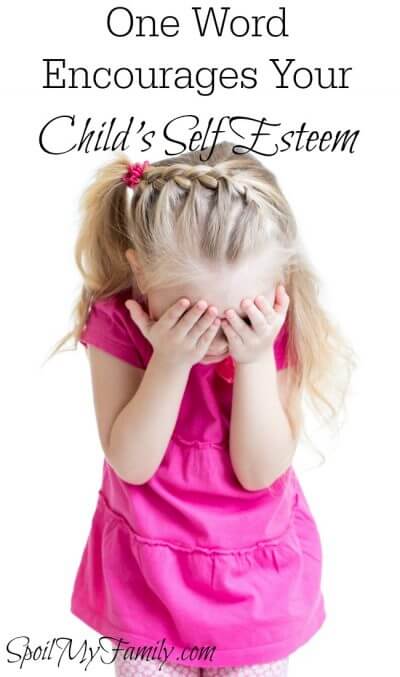I was about twelve. I don’t recall exactly what took place that day. But I do remember the anger that engulfed me during the conversation with my mother that followed. As my frustrations boiled over, Mom said, “I understand.” She, of course, meant to help. But instead, her comment made me furious. “You do NOT understand!” I screamed at her.
This post may contain affiliate links. This means that if you purchase something through one of the links on my site, I may earn a small commission to keep the site going – thank you!
If this sounds familiar, you already know that understanding tweens and teenagers does not come naturally. If you want to understand tweens, know this. Tweens and teens don’t believe that mere parents could possibly understand their teen angst. But, when I genuinely do understand, I’ve learned a way to prove it to them.
Tweens and teens are wired to be hostile and ambivalent; they are exploring who they are. There are so many reasons that they could be angry at any given time of the day. It’s an important part of the transition they are starting through to discover who they are.
Because this is their season of change, it doesn’t matter what we say. They need more than words to believe that we understand their situation. Though they won’t admit it, they want and need us to be there so that they can connect with us.
Being Intentional About Understanding Tweens
I’m intentional about remembering how angry and misunderstood I felt when my mother assured me she understood. She meant well, but I couldn’t feel it. Instead of helping, her efforts fueled the flames of my tween anger.
As my son approaches his tween years, I’m already working to make sure I can let him know that I genuinely understand what he’s going through. So I’ve found a couple of tools that help me. I remember my tween years, what a difficult time it was. There were painful moments during those years – the zit that popped up on the wrong day, the fear that I would wear the same outfit as somebody else, or the time the other kids were talking about me, all those memories are there.
Tweens Don’t Believe You When You Tell Them You Understand
But in that moment with my mother, I didn’t believe she understood. Let’s face it, part of being tweens and teens involves drama. And at this age, the drama of it all is that whatever they are going through, we can never understand because, they believe, we’re old and out of touch. They believe that their worries are so unique parents could never have experienced them.
Even though your preteen may seem hard to be around, this is the time when she needs you most. Ask if you can sit in her room and hang out for a bit while you smile and listen to what’s going on in her world. According to Dr. Laura Markham of AhaParenting.com, preteens who feel understood, heard and loved are more likely to respond to guidance from parents. (cite)
In order to stay tethered to us, they need to feel strongly that their parents understand what they are going through. When they were little, mirroring back their feelings, providing a needed snuggle, or a band-aid was easy enough to convince them we understood their feelings. But as our children grow more sophisticated, we need to be able to convey our understanding in a more believable way.
So I need to demonstrate to my son that I understand – it’s not enough just to tell him.
Genuinely Understanding Tweens
If you’re working to prove you understand, you must be genuine – you can’t fake this one. Assuming that you truly understand, the perfect way to demonstrate understanding is by sharing a relevant story about myself when I was younger.
Family stories provide a sense of identity through time, and help children understand who they are in the world. Researchers have theorized that family stories are a critical part of adolescents’ emerging identity and well-being, but they haven’t been able to measure how much kids know about their family history and intergenerational family stories. (cite)
Opening up with your children and explaining your vulnerability at their age proves to them that you have been there – that you do understand. It provides them with a situation in your life from which they can take their cues.
When You Really Don’t Understand
But what if you really don’t understand? Like I said – you can’t fake this. If you don’t understand, then sometimes the most understanding thing you can do is to come clean and admit it. Always follow up by letting them know that it is alright that you don’t understand. Your other choice is to ask them to explain it if they would like.

Understanding tweens can be a struggle. Tweens have the same basic needs they had as small children, but as parents we need to update the way we deliver their needs. Sharing our authenticity is a great start – the stories of our struggles from which we learned – it helps our children see us in a different light.
Now, if my older son is feeling upset about something that has happened, I try to provide him with a story from my childhood about something similar. If I don’t have a story from my own childhood, then I will try to tell him about something that happened to a friend of mine. These are all teachable moments, and we may not be able to prevent our children from making some of our mistakes, but they will know that we genuinely understand.
Understanding Tweens – An Amazing Tool:
My good friend Sumitha at A Fine Parent has designed and created this most amazing and special Connected Hearts Journal. You may have read how successful journaling has been as a communication tool for my son and I and the Connected Hearts Journal is so elegantly and cleverly designed, your child will be asking you to journal with them again and again. You can meet the creator and see the journal in action here; I can’t wait to receive mine!
Related Post You May Like:
Your Best Response to Your Child’s Intense Emotions
Related Post You Might Like:
One Word To Encourage Your Child’s Self Esteem
Related Post You Might Like:
One Powerful Tool To Encourage Your Child To Open Up








